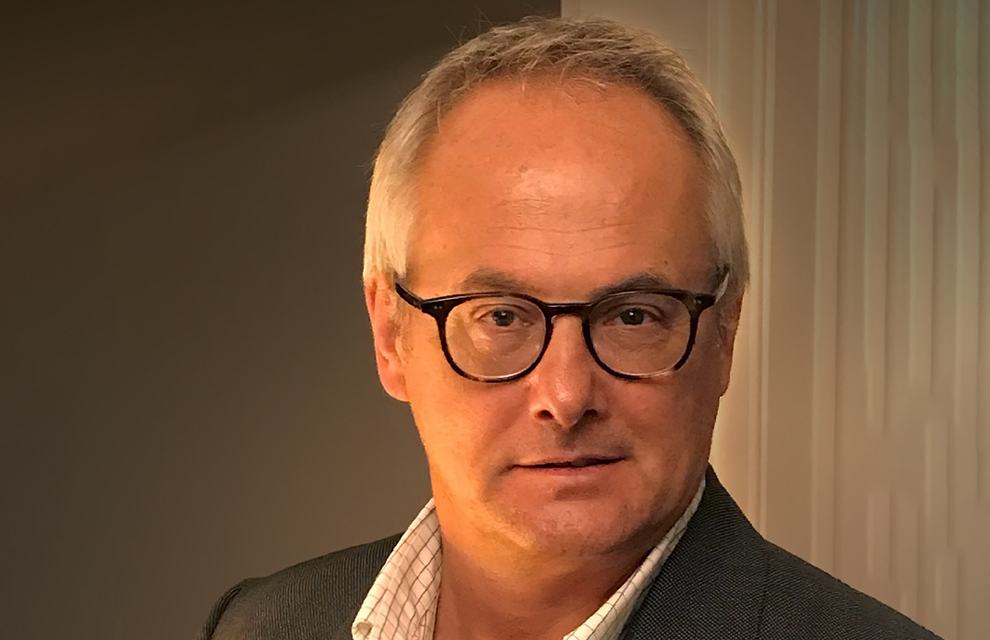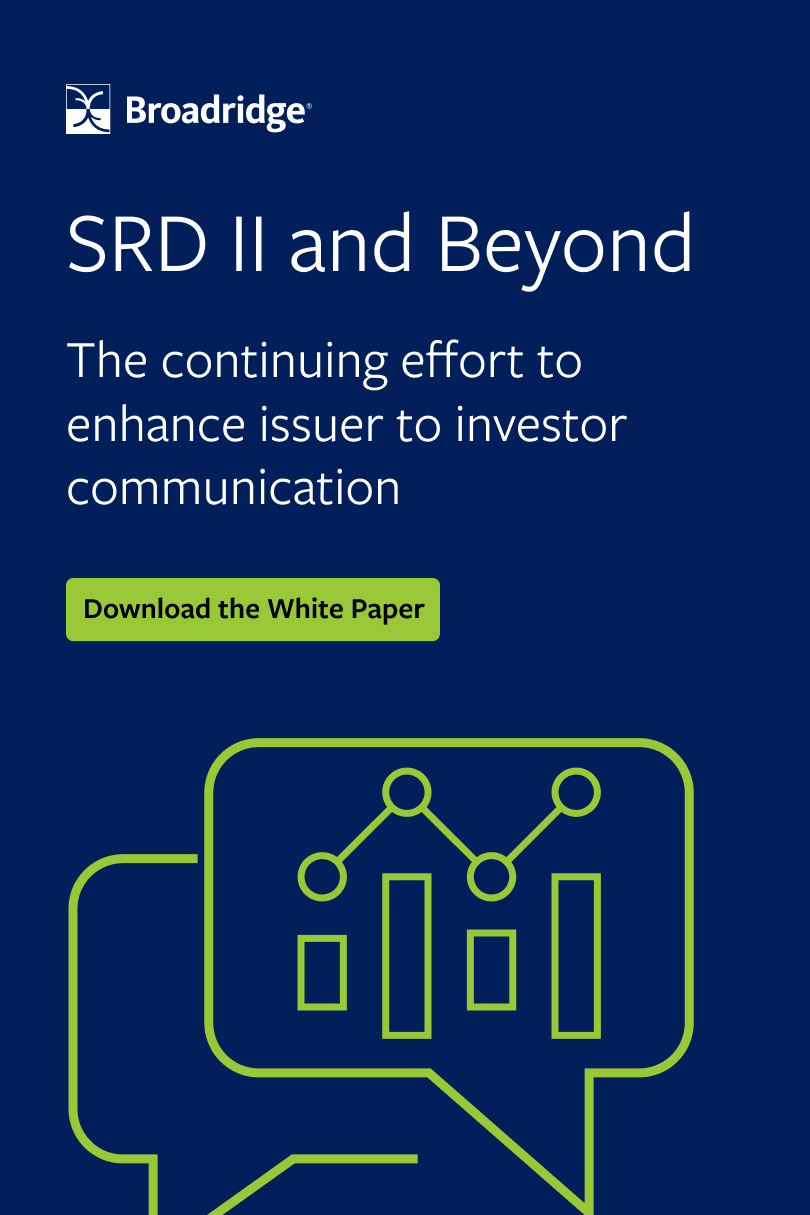MYRIAD’s CEO Simon Shepherd talks to Jenna Lomax about the company’s recent client expansion and what he’s most looking forward to about this year’s Sibos Conference
MYRIAD has experienced a period of steady growth, in terms of client onboarding and expansion of its service portfolio. What factors have been key to onboarding new clients?
There are various factors at play here: the management, control, and protection of any data is of huge importance to banks, and so is demonstrating these capabilities.
Banks have been under increased pressure to safeguard their data, adhere to privacy regulations, and remediate information security concerns, together with ensuring that access can be controlled, especially since many firms now employ a hybrid working environment following the COVID-19 pandemic.
Many institutions will try to solve these challenges themselves but when the time, cost, and effort required prove to be unmanageable, not to mention the expertise needed, MYRIAD can step in and present the solution.
As ever, the expanding volume of regulation being introduced at both national and pan-national levels remains a factor; this directly impacts a bank’s operations, where it is under scrutiny to provide better transparency and superior reporting.
The COVID-19 pandemic has also been a factor, undeniably, as has the war in Ukraine. Accessibility of data and risk management have been, and continue to be, paramount.
These factors influence enhancements in system design, security, how data is stored and accessed, and how people work securely when remote. These factors have all helped boost our pipeline.
And how has MYRIAD been able to achieve the level of client expansion and retention it has experienced?
For us, this is straightforward: our client operations team expands in line with client numbers, and one feeds off the other.
The platform is well designed and is highly fit for purpose. Clients want to know that MYRIAD is going to be around in 15 years’ time.
They want to be confident that when a product or platform is implemented, it will be supported by technical experts who are able to ensure that the system is available 24/7, 365 days a year. Most importantly, clients know the platform continues to evolve, to meet their growing needs.
We have always tackled the complex nuances involved in bank network management, which has positioned us very well from a technology and a functional perspective.
Due to the number of former network managers among our staff, our clients have been reassured by the level of domain knowledge that we can apply to their requirements. This, in no small part, contributes to our zero-attrition rate.
MYRIAD has also expanded its in-house team significantly, adding sales, development, and client operations personnel to its global team, for example.
How have these hires also contributed to MYRIAD’s expansion in recent years?
Our strategy has always been to expand the team in step with the number of clients that we have. There is almost a direct correlation between the number of clients that we have and the number of staff we employ — although sometimes we hire to get ahead of the curve, and then the number of clients catches up.
We hire very carefully, due to the nature of what we do. We also ensure our revenue targets line up with our staffing and other costs, to be sure we can deliver our service safely and consistently. The expansion of our technical team is predominantly due to the changing of our hosting model to the cloud.
We are now working with Google Cloud Platform and have subsequently brought some system administration support back in-house — they sit in our technical team as part of MYRIAD’s overall development and technology offering.
What plans do you have to extend MYRIAD’s global coverage?
We have people sitting in different geographies covering Asia Pacific, Europe, and North America. We have established clients in all regions, and we are looking to grow our presence accordingly, building out a combination of sales resources and the client operations team. The number one priority for us is always to ensure the client receives the best service throughout — from signing the contract, to implementation and thereafter, which means that our biggest team is client operations, offering extensive coverage all over the world.
MYRIAD publicised CODUDE pricing in July 2022. Can you tell us more about the platform and how it aids the due diligence process, and why low-cost is so important?
CODUDE, short for collaborative due diligence, is the fulfilment of our ambition to provide a low-cost industry utility, a platform where institutions can request and access providers’ data securely as a private, bilateral exchange of information. The notions of bilateral and private are especially important, as clients move away from expensive and often intrusive service-oriented suppliers.
Data is housed within CODUDE, but can only be accessed once permission is opened up. How a platform like that is built, made secure, and enables private, bilateral exchanges, is critical.
The data, per se, is not that ‘valuable’, though it needs to be kept private and secure. Why should it therefore be expensive to access it?
Having said that, there are significant privacy considerations surrounding an institution’s data: some vendors access private information, sometimes ‘adopting’ that private information for their own use.
This is not what we do; preserving a secure bilateral exchange of data and doing it at low cost is how we go about it. Fundamentally, we think that is the direction of travel for the industry.
Beyond this, how have you been developing the company’s solutions portfolio and supporting technology?
When we pitch our platforms, the solution is built not just for the next 10 months, but for the next 10 years. That means that once clients buy into the platform, they will never have to worry about development again, as we will continually collaborate with them.
If regulation changes or functional needs change, they can say: “This is what we want. Can we have that?” and we respond with: “Yes, we do that for free”. Not only are we keeping pace with functional developments, but we are also doing it at very low cost — it is essentially a free upgrade.
We introduced an innovation programme about 15 months ago which has taken us some time to work through and it is just coming to an end. We are about to publish the strategy and decisions that have been made internally. Later in the year, we will be holding briefing sessions for our clients and prospective clients, so they can hear our plans for MYRIAD Next Gen.
How have your client’s needs changed over the last three years, not just because of the COVID-19 pandemic, but also due to increased levels of regulation coming down the pipe?
Many people have been presented with entirely different business challenges in recent years, mainly due to the COVID-19 pandemic, and this has brought their business operations and operational resilience sharply into focus.
As our client base grows, so does its diversity, including large banks, international brokerage houses, custodians, major sub-custody providers, cash management teams at commercial banks and private banks. Our pipeline has never been fuller or more international in flavour and we have several near-term prospects who are moving to contract.
Over the last three years, there has been realisation that if hugely functional third-party platforms exist, why reinvent the wheel by trying to build it yourself? There has been a slow but steady move away from “build this in-house” to “buy, and then focus on integration”.
Integration is exactly where the big financial institutions should spend their money. They have huge legacy technology challenges, where they are better off extracting that valuable data and doing more with it, by integrating with industry standard functionality.
The focus should be on closing the gap between legacy technology and new technology, to ensure that data transfers safely and securely, and that integrity is maintained. This is where application programming interfaces (APIs) are so important, as part of the integration effort.
Our chief architect says he can foresee a time when systems like ours are almost entirely based around APIs — fetching data, calling data, pushing data out to other systems.
APIs do not do any processing, but they do gather data from places where it is perhaps a little less valuable, because it is not being used to its full effect; into systems and platforms where much more is being made of that legacy data. Data aggregation and standardisation are important, and are what the future looks like.
How are old regulations, such as DORA, affecting the industry and how do they continue to influence the banking industry’s points of action for appointing certain providers?
The steady build-up of regulation over the past 20 years represents a continuing challenge for banks. Compliance departments are constantly recruiting, and legal teams are constantly under pressure. Digital operational resilience has been severely tested in recent years.
The arrival of DORA plays to our core strengths. It examines how data is captured and stored securely, how integrity is maintained, and how it is made available, operationally. The data must be accessible, with full audit trails intact. You have to control who can see what, when, and where, but also guide clients to find the data.
Graphical user interfaces, and the logic behind them, dictate how systems are laid out to enable people to find a legal contract, or a fee schedule, or to locate a particular issue that the team is tracking. Tracking who touches or changes that data is a vital feature of any system like ours.
SIBOS is back as an in-person event for the first time since 2019. What are you most looking forward to about SIBOS this year?
The ‘in-person’ bit! When we meet up with people, at events such as Sibos, the buyers get a feel for how a project will be supported and how our products work. You do not always get that over the wires, but you nearly always get that in person. Sibos gives us the opportunity to get together with many of our contacts and clients and to provide updates on MYRIAD, in person. And of course, we will be doing that for the first time in three years.
This means we will refresh business relationships face-to-face, renew conversations that might have lapsed over time, and generate fresh connections with a handshake, rather than impersonal phone calls and internet meetings. The buzz of Sibos, and the output from the conference, in terms of client and prospect contacts, always helps to boost our momentum.



